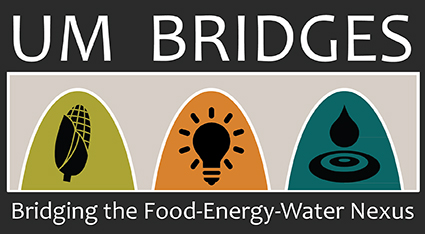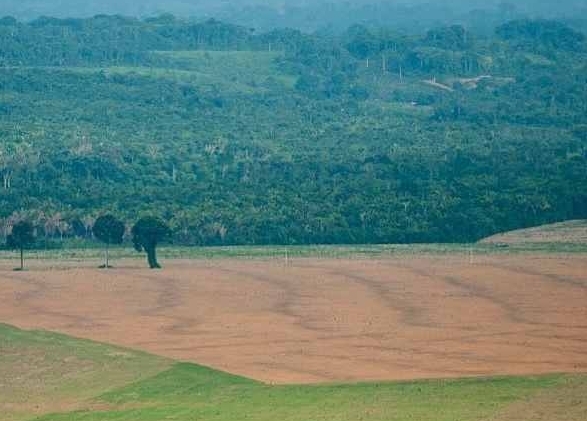
Jordan Jimmie investigates Amazonian land use policies on indigenous lands

Food-Water Nexus and Deforestation Implications in Brazil’s Indigenous Territories: Upholding Land Tenured Rights in Country’s Effort to End Deforestation
During Jordan Jimmie's internship at the Woods Hole Research Center (“WHRC”), he worked with mentors to complete a policy brief presenting data on the importance of protecting old-growth rainforest located on Indigenous Lands (“ILs”) in the Brazilian Amazon. Upholding Indigenous land rights and protecting forests within land boundaries have shown to regulate local temperatures and significantly influence the local hydrology. Further, studies have shown that deforestation rates are lower on ILs than areas adjacent to the land boundaries. Ending illegal deforestation and reducing deforestation rates are two of several goals ratified by Brazil in the COP 21 Paris Agreement.
The policy brief highlighted deforestation implications on tropical rainforest ecosystem service, Brazil’s food-water nexus, economics, political landscape, and Indigenous land rights. The brief then points out the implications of ending deforestation and the food-water nexus by upholding and demarcating Indigenous land claims in Brazil. Lastly, the brief provided recommendations in facilitating our recommendations. Jimmie is hoping to present this policy brief to WHRC partners in hopes of linking local science to candidates running in the upcoming Brazilian elections.
Jimmie is a masters student in the College of Forestry and Conservation and a UM BRIDGES trainee.

